5. Carlito’s Way (1993)
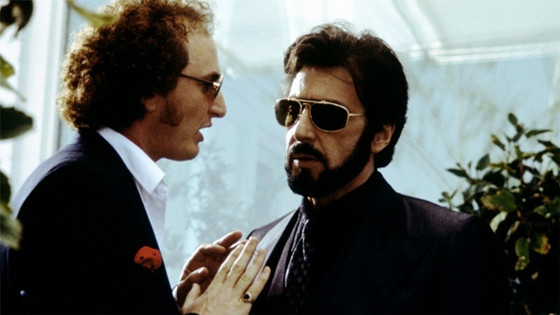
“I don’t think I could have made a better film,” he says directly to camera in Noah Baumbach’s and Jake Paltrow’s 2015 documentary De Palma, as the director discusses his 1993 crime saga mini-epic, Carlito’s Way.
A classic gangster picture, every bit as quotable (“Here comes the pain!”) as his more widely recognized Scarface, also starring Al Pacino, here playing the titular Carlito Brigante. After a long stint in prison he fully plans on giving up his criminal ways but it’s not long before the New York City underworld has Carlito back in his drug kingpin position.
Adding depth to this dizzying and dangerous tale is Penelope Ann Miller as Carlito’s dancer girlfriend Gail, a shady scene-stealing Sean Penn as his best friend, lawyer and unlucky fuck up Dave Kleinfeld, Luis Guzmán as Carlito’s right hand man Pachangaas, as well as dangerous rival badass Benny Blanco (John Leguizamo), and a brilliant early career performance from Viggo Mortensen as Lalin, a paraplegic turncoat.
This is peak De Palma, undoubtedly, and amongst its many distinctions it was named “Best Film of the 1990s” by Cahiers du Cinéma. “When you can’t see the angels no more, you’re in trouble.”
4. My Own Private Idaho (1991)
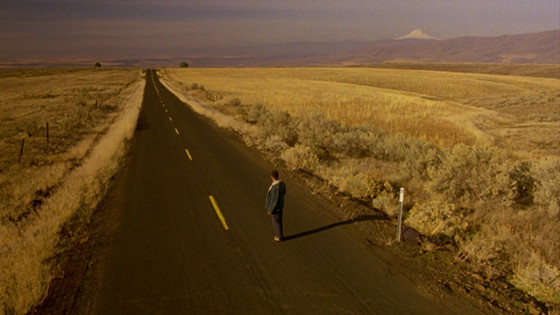
A pionner of both American independent film and the New Queer Cinema movement that sprang fromthe 1980s, Portland, Oregon-based filmmaker Gus Van Sant first made waves with a streak of tenacious underbelly dramas populated by provocative and tragic outsider male protagonists, and the top of that pile is Mike Waters, the narcoleptic street hustler brought to vivid life by River Phoenix in My Own Private Idaho.
“I’m really going in a weird I-don’t-know-where direction,” Van Sant has proclaimed proudly in interviews, adding “I prefer it to anything like what standardized filmmaking has become.” Such a maxim is evident in every frame of My Own Private Idaho, an invigorating and heart-breaking tale about the journey home, steeped in magnificent and deeply poetic imagery.
Quirky and wonderful, with rich performances that include Phoenix’s iconic lead but also a shockingly nuanced turn from Keanu Reeves, and a strong supporting cast that includes Chiara Caselli, Flea, Udo Kier and James Russo. A wickedly comic and poignant picture, it’s also one of the 90s most unsung lyrical odysseys. Don’t miss it.
3. River of Grass (1994)
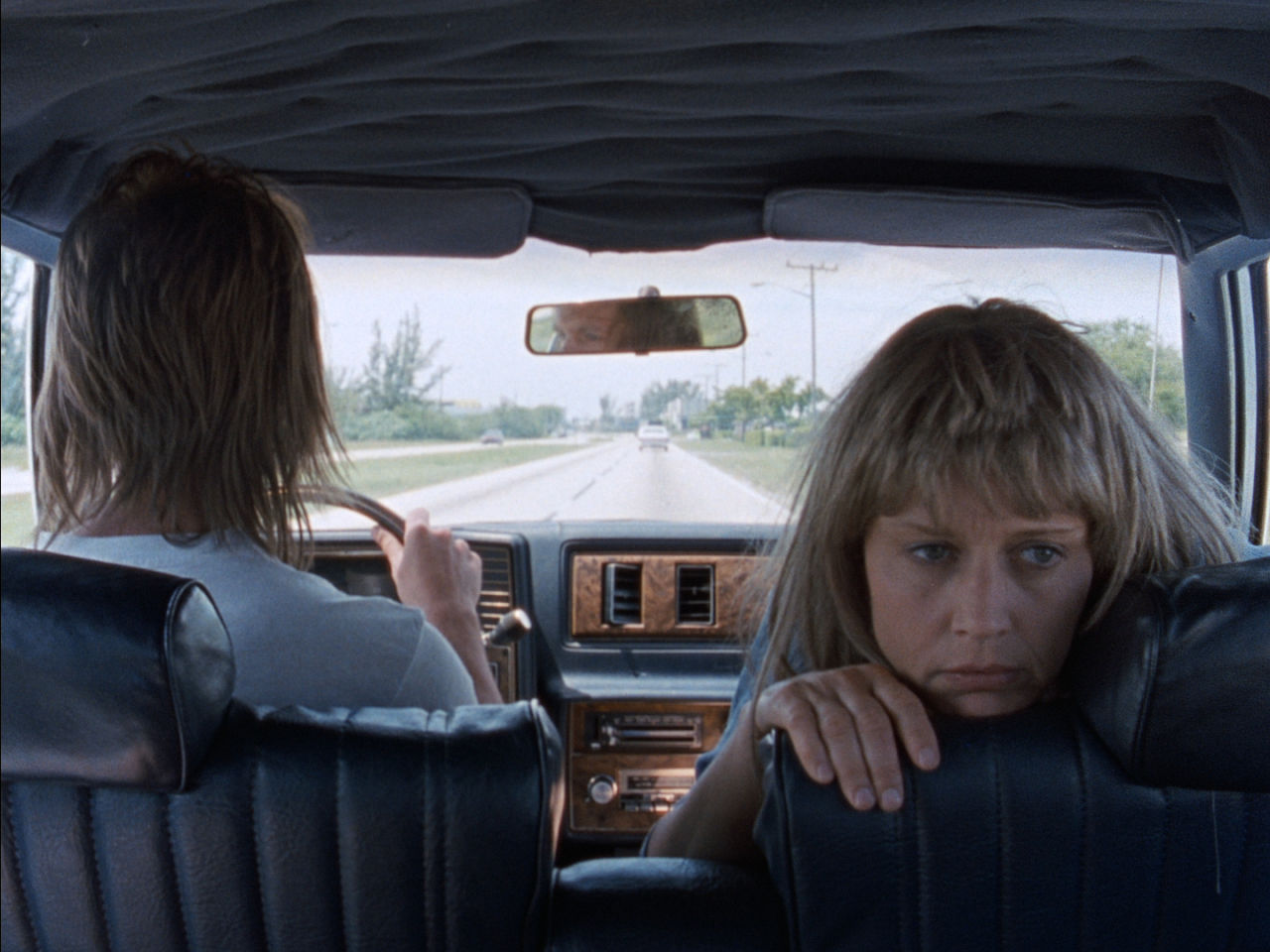
The feature film debut from writer-director Kelly Reichardt (Meek’s Cutoff, Certain Women) is a darkly comic, ennui-imbued, lo-fi affair that plucks the languid strings of amour fou in 1990’s rural southern Florida.
Described in her own words as “a road movie without the road, a love story without the love, and a crime story without the crime,” Reichardt’s River of Grass catches up with a thirtysomething mother and housewife named Cozy (Lisa Bowman) who foolishly falls for Lee (Larry Fessenden), a pistol-packing ne’er do well in the sun-scorched Everglades.
Reichardt grew up in that corner of the world, and her lens lovingly captures the occasional boredom, and unsuspecting beauty of the country there. And when our slacker-couple predictably fuck things up, they make an ill-advised tragicomic go at the outlaw life.
Even though Reichardt’s first film charmed Sundance and made year-end lists far and wide, River of Grass was nevertheless her only feature for well over a decade (until 2006’s Old Joy), citing being stifled by male-dominated industry that was so idiotically reluctant to finance women-helmed pictures of the art house variety. Typical.
“Highly original and filmed with perfect assurance,” raved Dave Kehr of the New York Daily News, who also called it “one of the finest independent films of recent years”, River of Grass is a remarkable work, and a fabulous first flight from one of America’s most gifted storytellers.
2. Jesus’ Son (1999)
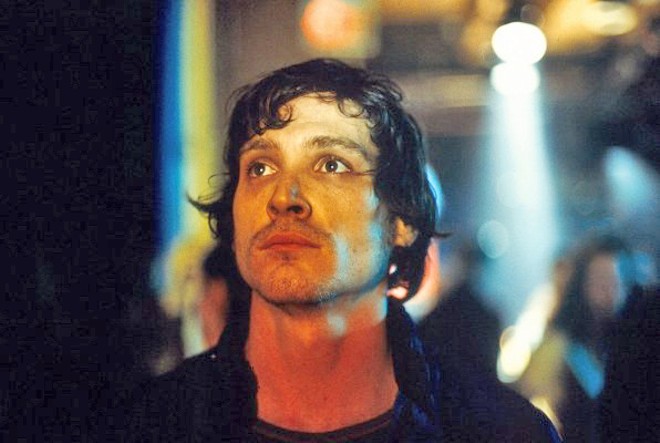
Of all the films on this list it could well be that none so suit the concept of “underrated masterpiece” quite like New Zealand filmmaker Alison Maclean’s absorbing, intimate, and criminally unsung adaptation of Denis Johnson’s beloved 1992 collection of linked picaresque short stories, “Jesus’ Son”. Following the edgy, extraordinary, and often amusingly bittersweet travails of Fuckhead (Billy Crudup), a drug-addled yet cherub-like young man on a meandering circular journey through dead end jobs, bad sex, addiction, petty crime, extra-sensory perception, doomed love, self-destruction and redemption.
Fuckhead pulls many disparate and sympathetic cheats and chums into his (usually) ill-fated orbit. There’s Michelle (Samantha Morton, in a brilliant early performance), who might be his true love but she seems to love junk even more, pill-popping orderly Georgie (Jack Black, excellent) who has some very squeaky shoes, broken-hearted, and bad luck Wayne (Denis Leary), whose downcast journey is graced with a little magical realism before the final curtain falls.
Maclean’s affectionate and dreamy direction weds the many stories being told into a harmonious, fittingly druggy synthesis. It’s supported by Joe Henry’s emotional score and a soundtrack including Tommy Roe and Wilco that really does bring all the heartbreaking highs and lows home. Crudup’s extenuating underdog, circa 1970s in Iowa City, is a satisfying, surprising, and relaxed little pop spectacle.
1. Miller’s Crossing (1990)
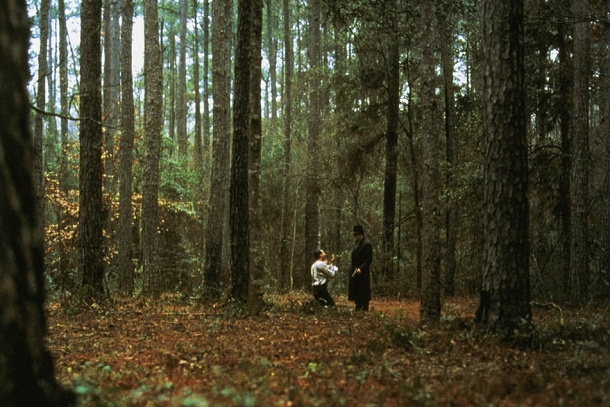
The Coen brothers approach the familiar gangster film with guns blazing, in the impressive, overtly stylish and for them rather underestimated mini-epic Miller’s Crossing. The 1990s were a lucrative and rewarding decade for Joel and Ethan Coen, with films like Barton Fink, Fargo, and the Big Lebowski ranking as some of their best known and best loved films. But the film that kicked off the decade for them is often their most undervalued work, though it might just be one of their very best.
All of the Coen’s signature hallmarks are on proud display with Miller’s Crossing. Their rapid-fire dialogue is as bright and sharp as ever (“Kid, what’s the rumpus?”), the company of eccentric characters is impressive and as well cast as their finest works (Gabriel Byrne, Albert Finney, Marcia Gay Harden, Mike Starr and John Turturro amongst them), cinematographer Barry Sonnenfeld’s impressive lensing and Dennis Gassner’s first-rate production design makes the Prohibition-era tale both dazzling, in-depth and entirely palpable.
The Coens wisely keep the plot simple, like the old gangster movies that inspired it, and the characters are what really hold the dark heart of this enchanting film. Such as likeable low-life and two-timing bookie Bernie (Turturro) or rival crime boss Johnny (Jon Polito), whose endless jabber about ethics has almost a Shakespearean lilt to it.
Miller’s Crossing is a technical tour de force, one particularly attractive to movie lovers pining for film noir of the 40s or the even earlier gangster movies of the 30s. It’s a film as inspired, elegant, startling and deeply detailed as the Coen’s most artful works. It glitters nicely in their filmography, a prize jewel whose reappraisal is passed due.
Author Bio: Shane Scott-Travis is a film critic, screenwriter, comic book author/illustrator and cineaste. Currently residing in Vancouver, Canada, Shane can often be found at the cinema, the dog park, or off in a corner someplace, paraphrasing Groucho Marx. Follow Shane on Twitter @ShaneScottravis.